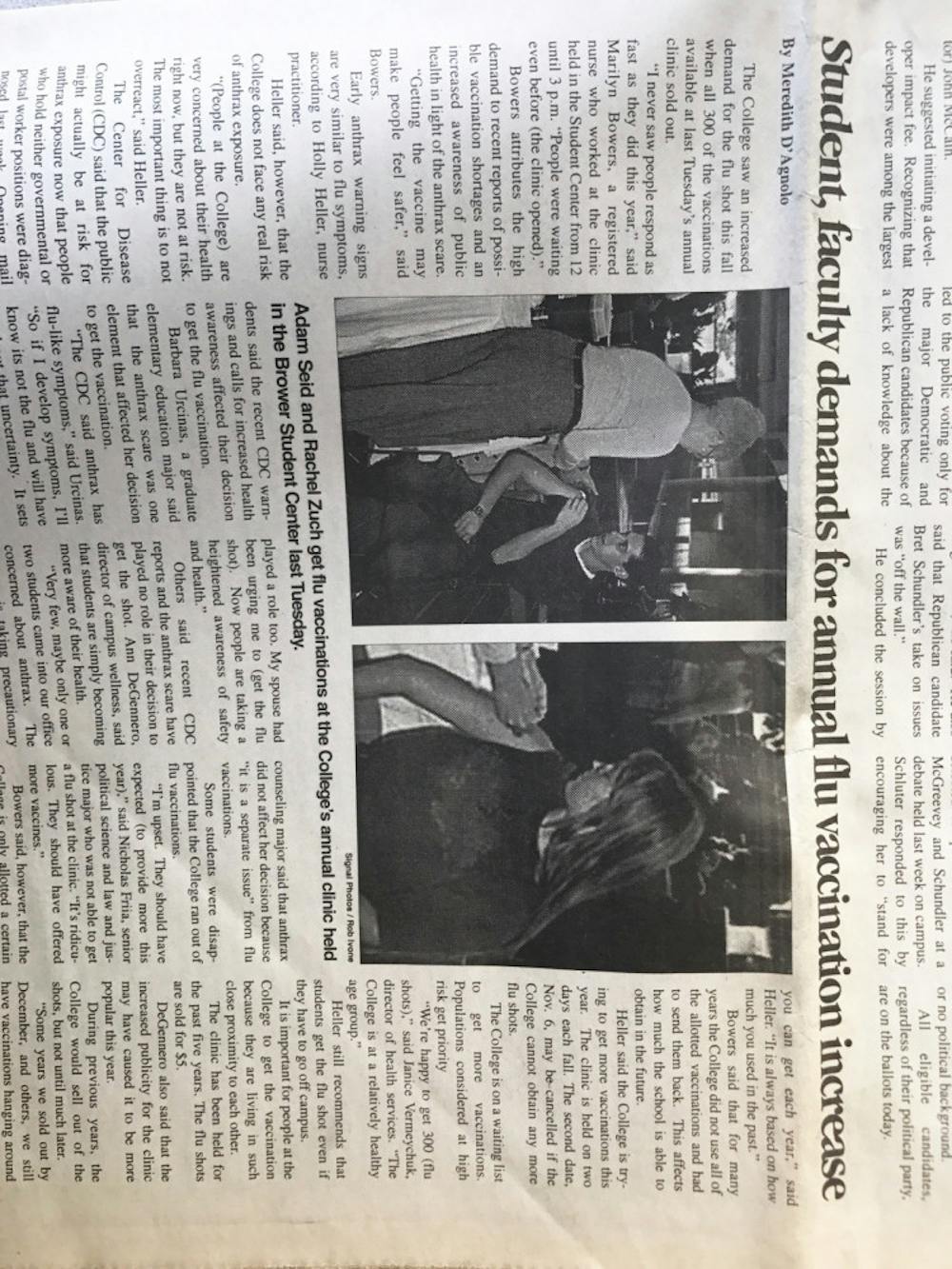Every week, Features Editor Ashton Leber hits the archives and finds old Signals that relate to current College topics and top stories.
The flu returns to campus year after year, impacting the students, faculty and staff of the College community. With vaccinations in high demand for prime cold and flu season, the College’s Student Health Services held a flu shot clinic last week. There will be another clinic open for all members of the College to get protection from the influenza virus next week on Sept. 28. In 2001, flu vaccinations were overwhelmingly popular, as the annual flu shot clinic sold out of all 300 of its vaccines. Because the flu spreads like rampant wildfire, students should take necessary precautions to prevent the illness from taking over their immune system and ability to attend class.

The College saw an increased demand for the flu shot this fall when all 300 of the vaccinations available at last Tuesday’s annual clinic sold out.
“I never saw people respond as fast as they did this year,” said Marilyn Bowers, a registered nurse who worked at the clinic held in the Student Center from 12 until 3 p.m. “People were waiting even before (the clinic opened).”
Bowers attributes the high demand to recent reports of possible vaccination shortages and an increased awareness of public health in light of the anthrax scare.
“Getting the vaccine may make people feel safer,” said Bowers.
Early anthrax warning signs are very similar to flu symptoms, according to Holly Heller, nurse practitioner.
Heller said, however, that the College does not face any real risk of anthrax exposure.
“(People at the College) are very concerned about their health right now, but they are not at risk. The most important things is to not overreact,” said Heller.
The Center for Disease Control (CDC) said that the public might actually be at risk for anthrax exposure now that people who hold neither governmental or postal worker positions were diagnosed last week. Opening mail may pose a risk of getting anthrax, according to Jeffrey Koplan, director of the CDC.
“The risk isn’t zero. It’s very, very small, but we can’t say it’s zero,” said Koplan.
Some faculty, staff and students said the recent CDC warnings and calls for increased health awareness affected their decision to get the flu vaccination.
Barbara Urcinas, a graduate elementary education major said that the anthrax scare was one element that affected her decision to get the vaccination.
“The CDC said anthrax has flu-like symptoms,” said Urcinas. “So if I develop symptoms, I’ll know its not the flu and will have ruled out that uncertainty. It sets my mind at ease.”
Paul Stephens, of the office of global programs, said reports of a heavy flu season prompted, him to get the vaccination this year.







